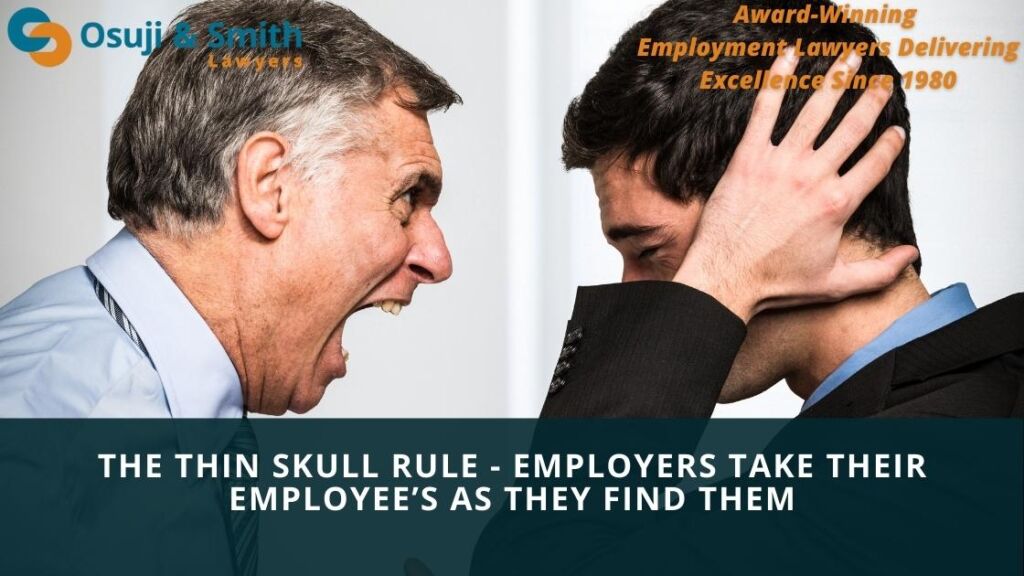The Thin Skull Rule – EMPLOYERS TAKE THEIR EMPLOYEE’S AS THEY FIND THEM
The Thin Skull Rule is known for its application in personal injury and criminal matters. The Think Skull Rule, states that the defendant must take the plaintiff as he finds him. In other words, a defendant is held liable for all of the victim’s injuries, even if the injuries are attributable or exacerbated by a pre-existing condition.

The application of this Rule was expanded in Younsei v Kaz Minerals Projects B.V, 2021 BCSC 61, in determining whether the Plaintiff was entitled to aggravated damages as result of his wrongful dismissal.
In determining whether a Plaintiff should be awarded aggravated damages in a wrongful dismissal claim, the courts apply the following three-step analysis,
- The Employer’s manner of dismissal was in bad faith or unfair dealing;
- The Employers conduct must have caused mental distress to the dismissed Employee. This distress must be beyond “ordinary” psychological upset, arising from the loss of one’s job; and
- The Courts need to determine the appropriate award, to compensate the Plaintiff for the harm caused.
In Younsei the Courts recognized how the Plaintiff’s pre-existing “thin skull” personality features, contributed to his prolonged distress experienced, following his termination. As a result, the Plaintiff was awarded aggravated damages.
Younsei has demonstrated that Employers can now be held liable for aggravated damages in wrongful dismissal cases, even when those damages were not directly caused by the Employer’s conduct, but rather, characteristic specific the Employee that make them more susceptible to prolonged mental distress.
It will be interesting to see how the Thin Skull Rule continues to be applied in legal matters surrounding employment. Moving forward Employer’s should become more aware and sensitive towards their Employee’s conditions.
Author: Amanda Jacinto

